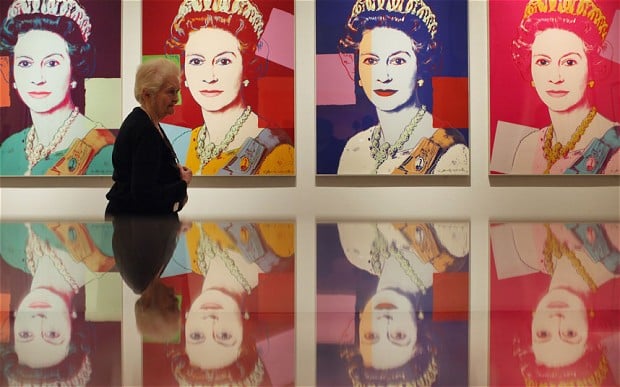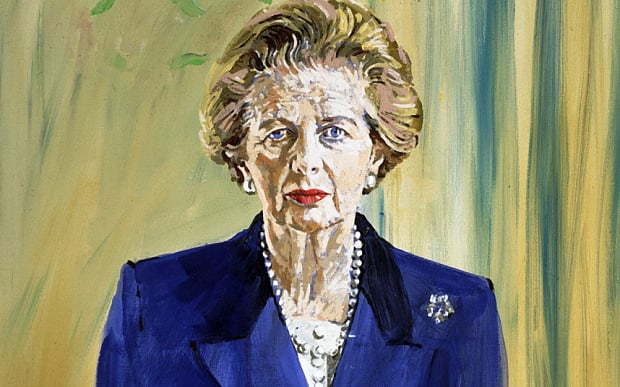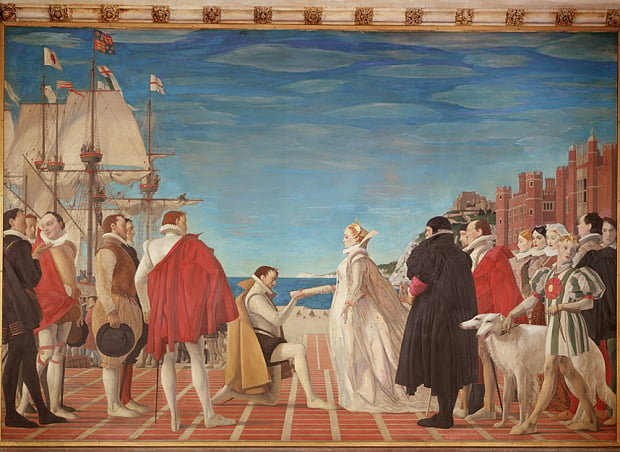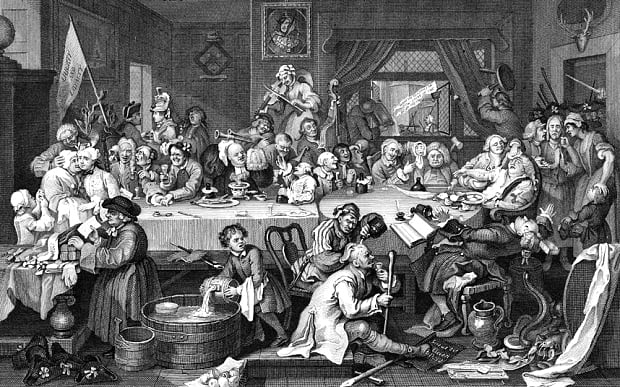Art & Exhibitions
Is the UK Hiding a Treasure Trove of Publicly-Owned Art?
Over 20,000 artworks are almost never seen.

Over 20,000 artworks are almost never seen.

Sarah Cascone


Henry Mee, oil painting of Margaret Thatcher (1992).
Photo: courtesy the Parliamentary Collection.
Should a vast collection of publicly-owned art made by some of the UK’s greatest artists be made accessible to the British people? Michael Dugher, the UK’s Shadow Secretary of State for Culture, Media, and Sport, is arguing that it should be.
Some 22,000 paintings, prints and sculptures can currently only be enjoyed by a “privileged few,” Dugher told the Telegraph, which had the story, noting that the publicly-owned works, worth tens of millions of pounds, are currently scattered across the globe, at government offices, embassies, and other facilities that are almost never visited by the average person. Only a fraction of the artworks on display in the Houses of Parliament, for instance, can currently be seen by tourists visiting the complex.

Andy Warhol Queen Elizabeth screen prints at the National Portrait Gallery, London. Works from the series are hung in British embassies in the US.
Photo: Anthony Devlin/PA; Oli Scarff/Getty Images.
Dugher is pushing to open a free public gallery to showcase the collection, which spans six centuries and features such names as William Hogarth, John Constable, Lucian Freud, and Andy Warhol. The British government purchased three Warhol screen print portraits of Queen Elizabeth at auction in the early 2000s, which are now hung in British diplomatic buildings in Washington, DC, and New York.
Parliament has an 8,500-piece collection, and the government owns an additional 13,500 works, but Dugher claims that less than 2,000 are widely accessible to the public.

Queen Elizabeth and Sir Walter Raleigh, detail from the series in St. Stephen’s Hall (mural) by Lawrence, Alfred Kingsley at the Houses of Parliament, Westminster, London.
Photo: ©Alfred Kingsley Lawrence.
“The works from the Parliamentary Art Collection and the Government Art Collection could then be rotated on a regular basis so that all art lovers, academics and art students would be able to access the historic collections,” he told the Telegraph, noting that “it would be possible to find enough space” in the Palace of Westminster.
The lack of access to what may be one of the world’s foremost art collections recalls the secrecy surrounding the CIA’s art collection, currently unveiled in an exhibition at the Contemporary Jewish Museum in San Francisco.

William Hogarth, The Humours of an Election (I): An Election Entertainment.
Photo: courtesy the Parliamentary Art Collection.
“All these great works of art are publicly owned so it is only right that everyone…should have the opportunity to see and learn from them,” said Dugher.